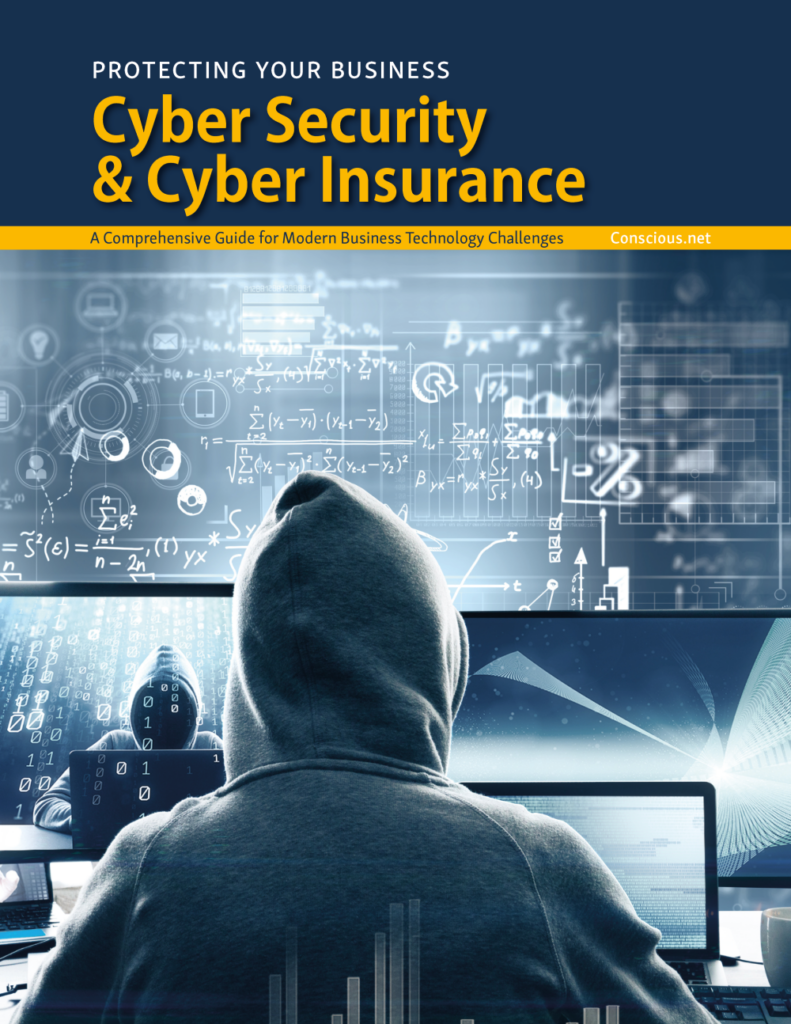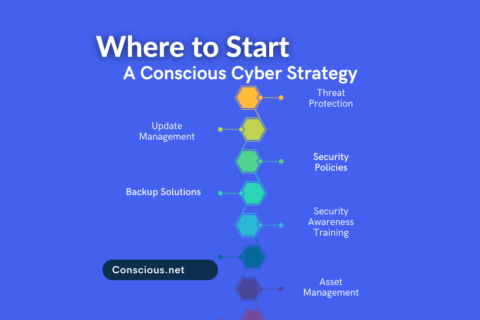Does Your Business Have Layered CyberSecurity?
Cyber threats such as ransomware and malware are at an all-time high. Companies have most of their data online and more employees working remotely which escalates the risks and endpoints that need to be monitored and protected. It is more critical than ever to protect your business with layered cybersecurity. What is layered cybersecurity? Layered cybersecurity refers to a holistic and multi-pronged approach that considers all vulnerable points and secures them effectively.
But today’s cybersecurity is highly advanced. Cybercriminal operations are multi-pronged and prey on businesses of all types and sizes. Therefore, the protection against these threats must also layered. Many companies assume that a basic subscription-based antivirus product is enough to protect them from imminent cyber threats. But unfortunately, the truth is that it simply isn’t enough. Cyber criminals work around the clock to target vulnerabilities and weak points. So what’s the solution? Layered cybersecurity is the only way to ensure that your data, employees, infrastructure, and company remain safe from all threats. Let’s take a look at the most important aspects involved.
Layered CyberSecurity Essentials
The term “layer” is used because that’s exactly what’s required – Multiple layers or levels of security. So, let’s break down each layer you need to keep your business safe.
1. Regular Employee Education
Unfortunately, one of the biggest threats to a company’s safety is the employees themselves. Cybercriminals can use employees as their greatest weapon – a point of access. Uninformed or naïve employees will often open emails, attachments, and messages carrying malware or ransomware viruses.
Cybercriminals are becoming exceptionally good at deceiving users into believing the legitimate origins of virus-carrying messages. They often imitate the email addresses of trusted vendors and suppliers and use believable English and company jargon. These sophisticated phishing attacks are very effective for the criminal and very problematic for the IT team.
For this reason, your employees and staff need to be regularly trained and educated on the latest tactics. Criminals’ modus operandi and their approach change rapidly. Every person authenticated to access your network presents a risk and each user should be trained regularly.
2. Protect Your Endpoints
Every access point or endpoint can present an opportunity for cyber criminals to attack. Endpoint security can include laptops, desktops, tablets, and smartphones. Endpoint security protects the network from cybersecurity threats. Endpoint security at Conscious Networks often includes anti-virus, anti-malware, EMMS and more! There are several reasons that endpoint security is more important than ever before.
- Data is the most valuable company asset – In today’s business landscape, online data is all-important. Everything is on the cloud or local systems, and this information is precious and vulnerable to cyber threats.
- Increase in number of endpoints – There are more endpoints than ever before, with mobile phones, laptops and tablets commonly used by all employees in different environments other than the office.
- Location of endpoints – It’s not just the amount and variety of endpoints that have increased; it’s also the locations that have grown. Employees are working everywhere because they’re able to. Devices are often connected to public wifi, which makes laptops, smartphones and tablets susceptible to attacks.
3. DNS Protection
The Domain Name System (DNS) is essentially a phone book for the Internet. It translates domain names into IP addresses that identify websites. Cybercriminals can often intercept the translation process, known as DNS hijacking, and divert traffic from the intended destination (Your website) to a destination of their choice. Here, they can gather valuable information such as passwords, employee details, sensitive company information, and more. To prevent this, companies need to have solid DNS protection in place.
4. Data Backups
Another vital element of layered cyber security is backing up your data. When company data is breached, it may create a multitude of issues. Some ransomware prevents restoration of that data while other cybercriminals threaten to destroy your information if you don’t pay up.
A backup and recovery strategy can protect your company data from this ever-increasing threat. Ransomware is the fastest-growing cybercrime modus operandi, and they are targeting all types of businesses of all sizes.
5. End-User Access Control
Companies also need to ensure that employees have tiered access to sensitive company data and systems. In a principle of least privilege (POLP) environment, employees only have access to systems and data that they need for their position and no more. This minimizes risk, across the company’s network.
Controlling access to data is one of the most effective ways to ensure that employees do not compromise information. It is also an excellent way to ensure that employees who can access the most sensitive data are trained in security protocols.
Getting Technology Experts On Board
When it comes to multi-layered cybersecurity solutions, most companies turn to technology experts vs. a DIY approach. After all, internal teams are often managing multiple priorities and demands and layered cybersecurity requires constant pivoting and assessment to match the latest threats and trends. To get the best layered CyberSecurity, a technology partner can be invaluable. Conscious Networks provides scalable cybersecurity and technology solutions for business. Get the conversation started with a free assessment.



